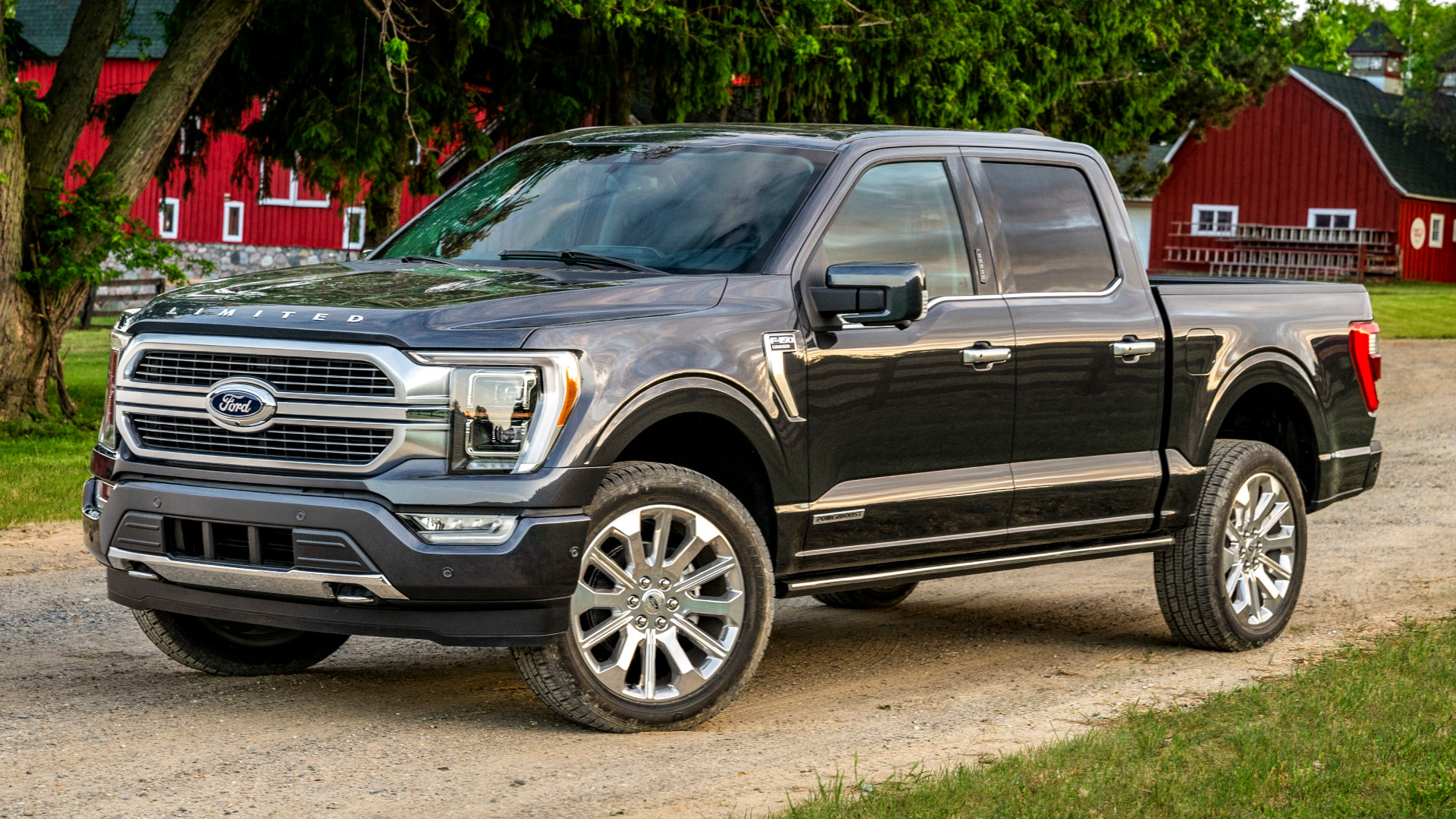

We may earn revenue from the products available on this page and participate in affiliate programs. Learn more ›
Ford is presently tangling with a strange and distressing phenomenon. Owners of recently-built F-150 trucks and Expedition SUVs are reporting sudden bursts of noise, loud enough to disrupt drivers and potentially even cause hearing damage.
As reported by the Wall Street Journal, owners have complained of distressing noises at unpredictable times while at the wheel. The sound emanates from the stereo system, blaring out of the speakers at great volume. Many reports involve a sudden “electrical pop” from the speakers, followed by either silence or extremely loud static. Others have described the sound as “glass breaking.” In these cases, the volume controls are unresponsive.
UPDATE 8/24/23 11:00 AM ET: This article has been updated with comment from Ford’s communications department.

The problem has primarily been reported in the 2022 Ford F-150, but has also been observed in 2021 and 2023 model years, too. Other affected models include the 2022 Ford F-150 Lightning and 2021 to 2023 Ford Expedition. Some reports specifically mention the Bang & Olufsen Unleashed sound system, but it’s unclear whether the issue only affects this equipment or a range of audio configurations for Ford vehicles.
Drivers have reported the sudden “ear-piercing” noise as so shocking that it’s likely to cause a crash. Some say they’ve been unable to keep driving under such conditions. Others have shared recordings of a lower-level continuous, crackling static.
Those with affected vehicles have attempted a range of solutions. Some were able to stop the sound by disconnecting the battery, or switching between stereo and surround modes. Others haven’t been as lucky, saying it’s remained loud and ongoing for some time, and even persisted after turning the vehicle off and on again. One forum poster noted that leaving the vehicle shut off for 30 minutes temporarily cleared the problem. In another straightforward case, an owner reported killing the noise by simply pulling the radio fuse. Complaints from owners on the National Highway Traffic Safety Administration (NHTSA) website mention dealers being unable to replicate or diagnose, let alone remedy, the issue.

In a particularly concerning example, one affected owner reported slamming on their brakes, as the sudden loud sound of breaking glass made them think they had been in an accident or shot at. Seconds later they realized the issue was down to the audio system. After driving to a dealership for help, the owner noted the sound persisted after the truck was turned off.
Ford has reportedly received around 100 complaints regarding the matter, while the NHTSA has numerous customer reports on file. At this stage, the company believes the problem is not at the level of a recallable safety defect, per statements from a spokesperson to the Wall Street Journal. Meanwhile, the NHTSA is aware of reports and following the situation.

The audio power amplifier is believed to be a part of the problem in affected vehicles. Ford has since issued a potential software solution which allows the amp to filter out the noise rather than blasting it out the speakers. A technical service bulletin has been issued to dealers to apply the fix to affected vehicles, while others may receive the patch via an over-the-air update. Interestingly, one owner reported to the Wall Street Journal that the problem was potentially fixed by a dealership replacing the vehicle’s 12-volt auxiliary battery, before the new software was available.
It’s important to note that a service bulletin is a less imperative campaign than a safety recall. Ford communications manager Maria Buczkowski told The Drive over email that “we know it may be startling and frustrating for customers who have had the problem, but, based on what we’ve analyzed to this point, we don’t believe it rises to the level of a recallable safety defect.” When asked about how effective the amplifier software fix has been to date, Buczkowski replied “we believe the fix is a software update, and it essentially mutes unwanted sound coming from the amplifier.”
Regardless, the sheer volume of the reported sounds is a primary concern. One owner reported to the NHTSA a spike of 109 decibels recorded by their Apple Watch, while others have claimed volumes in excess of 100 decibels. The CDC notes that sounds over 100 dB can damage hearing in as little as 15 minutes, while sounds over 110 dB can cause some hearing loss in just 5 minutes. As anecdotal evidence, one owner speaking to the Wall Street Journal noted his ears rang for days after the noise burst from his truck.
Those affected should reach out to a dealership to seek the update now available. In the meantime, drive carefully. Should you be startled by any loud noises while on the road, at least now they may not come as a total surprise.
Got a tip? Let the author know: lewin@thedrive.com
